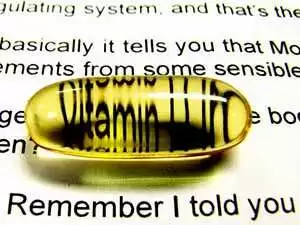Celiac.com 07/25/2016 - Celiac disease is a tricky rascal. Just when you think you've got it under control, it sneaks up and manifests into new and often unexpected problems. At least, this is what we have found over the last decade. From contacts with others who have celiac disease, we know we're not alone. I'm in my early thirties and find that sometimes my body acts more like that of an old man's. For instance, I've had gout even though my diet contains almost none of the food culprits traditionally associated with that disorder. Then I learned that what gout and celiac disease have in common is that they are both auto-immune diseases. My skin is quirky and has been since I've been little; I can't wear certain types of fabric and have to use soaps and detergents for people with "sensitive skin". Celiac disease, I gather, is associated with a variety of skin problems, including psoriasis. I had to have my gall bladder removed a couple of years ago. I have elevated liver rates. Why me? I'm too young for this! Then I found that it is common for people with celiac disease to have liver and gall bladder problems.
This spring, I started becoming so tired that I couldn't wait to go to bed, even though the sun was still shining. I finally went in to see my MD who took my blood for testing. The results? I had no vitamin D. None. I have a good diet (see my book Going Gluten Free for proof of this!), and I know that vitamins are important. I know that sunshine is associated with vitamin D, and while I'm not outside all the time, I'm not like a vampire that only goes out at night. I do get sunshine. I also have a sun lamp over my desk. So why did my blood levels indicate I have no vitamin D? Evidently I'm in good company again – lots of people with celiac disease have vitamin D problems.
Celiac.com Sponsor (A12):
Vitamin D is unique. Evidently Vitamin D isn't really a vitamin at all – it is a secosteroid, a hormonal precursor that is similar to other steroids that the body makes, such as cholesterol, testosterone or cortisol. Vitamin D obtained from sun exposure, food, and supplements is biologically inert and must undergo two hydroxylations in the body for activation. The first occurs in the liver and converts vitamin D to 25-hydroxyvitamin D [25(OH)D], also known as calcidiol. The second occurs primarily in the kidney and forms the physiologically active 1,25-dihydroxyvitamin D [1,25(OH)2D], also known as calcitriol. Vitamin D promotes calcium absorption and is necessary for variety of health processes, including the creation of strong bones, modulation of cell growth, neuromuscular and immune functions, and the reduction of inflammation. Vitamin D is located in the nuclei through a receptor. It impacts the creation of proteins that then transport calcium or phosphorous, which bones and other body functions require for healthy development. Vitamin D stimulates how the intestine absorbs calcium and mobilizes phosphate levels. Without vitamin D, our bodies and our lives are in trouble.
I'm not a nutritionist – I'm a film maker. But from what I have learned, low vitamin D levels in one's body is associated with how well the body can absorb calcium. I had no idea that I was deficient in vitamin. Some people may not experience any symptoms of it at all. Symptoms of vitamin D deficiency are sometimes vague. They can include tiredness and general weakness, aches and pains, which may result in people feeling like they can't move around as well as they wish. Some folks experience frequent infections. There is no way to know if you have a vitamin D deficiency or not unless you get a blood test. Doctors measure if you're deficient in vitamin D by testing your 25(OH)D level. Getting a blood test is the only accurate way to know if you're deficient or not.
Vitamin D deficiency is thought to be related to having a "leaky gut." Research indicates that vitamin D can be helpful to maintaining tight junctions in the small intestine that regulate what gets in and what stays out. Dr. Tom O'Bryan describes this to be similar to a rubber band wrapped around the junctions; if it gets too stretched out it may lose its elasticity and ability to snap back in place. People who are deficient in vitamin D tend to have rubber bands that aren't operating normally and allow foreign material to leak into the body, which can promote inflammation. Vitamin D seems to modulate the immune system and regulate the inflammation to keep it in check. In particular, it has been found to inhibit the development of a variety of other autoimmune diseases.
If you've got a vitamin D deficiency, you better do something about it, otherwise you exacerbate the possibility of future health problems. Dr. Lisa Watson has found that low vitamin D levels decrease the amount of calcium that a body can absorb, and for those of us with very low vitamin D it is possible that only 10-15% of dietary calcium is absorbed (compared to 30-40% in healthy individuals). Other experts report that because people with Celiac disease have villous atrophy, we have malabsorption issues that may ultimately modify that way our immune systems react, which can lead to further autoimmune diseases. Lower absorption of calcium is also related to bone diseases, brittle bones, and osteoporosis - which makes me reconsider about why my ankle was so weak that I ended up having surgery on it a few years ago.
So what are people like us to do? First thing is to see a doctor and have a blood test so you can get an accurate indication of if you actually have a vitamin D deficiency, and if you do how much of a deficiency you have. Don't try to self-diagnose your condition. It's tempting to do this. But go see your doc or an expert in the field. It seems that serum concentration of 25(OH)D is the best indicator of vitamin D status, so that's probably what test they will run.
Don't go to the store and buy vitamin D and start taking it without knowing what you are doing. How much a person needs varies by the individual. There are vitamin D supplements available, but it is not wise to start self-medicating and guessing at how much you should take. Get a professional opinion and follow it. Get your serum blood levels tested regularly, monitoring it to make certain you're on the right amount. Evidently the amount of stress one is under, the time of the year, what one is eating and other factors may influence absorption levels. There is such a thing as vitamin D toxicity where people can take too much of a good thing. So find out from the doctor exactly what amounts you should be taking.
It's important to figure out exactly why you have the vitamin D deficiency. Perhaps it is associated with your diet or lifestyle. It is possible to alter our diets and eat more foods that are in our best interests. Actually, very few foods naturally contain high amounts of vitamin D. The flesh of fatty fish like salmon, tuna, and mackerel and cod liver oils are among the best sources of vitamin D. Smaller amounts of vitamin D can be found in beef liver, cheese, mushrooms and egg yolks. Foods, like milk and milk products that are fortified with vitamin D, provide most of the vitamin D for people in the USA. If you take vitamin D supplements, addressing them could do the trick for you.
Most of us could get out into the sun more, but if we've got a malabsorption issue the amount of vitamin D we get from the sun may actually not matter that much. It never hurts to get into the sun (with moderation, of course). Doctors may tell you to get out into the sunshine, since ultraviolet rays from the sun interface with the body to activate it through vitamin D receptors. These receptors are located throughout the body, including the brain, heart, skin, and a variety of other organs. But it's not as simple as just getting out and talking a walk. Season, time of day, length of day, cloud cover, smog, skin melanin content, and sunscreen are among the factors that affect UV radiation exposure and vitamin D synthesis. Sales of ultraviolet ray lamps have increased dramatically with people who have to stay inside doing work under them just so they can capture some Vitamin D. But for some of us with celiac disease, we can't get enough of it by being out in the sun, sitting under the lamp or eating the right diet. We have vitamin D problems mostly because our bodies can't absorb it properly.
It's important to pay attention to what your body is telling you. When something doesn't seem quite right, it's important to then do something about it – like going to a professional who can diagnose, treat and prescribe. It could be that you, like me, keep realizing new ways that Celiac impairs our lives. Celiac is not for sissies. If you've got it, you've got to work with your body, listen to it, and take actions to honor it. By working with health professionals who know about celiac disease, keeping up with the research, being diligent and having a positive attitude, we can still live good and healthy lives.
Based on its review of data of vitamin D needs, a committee of the Institute of Medicine concluded that persons are at risk of vitamin D deficiency at serum 25(OH)D concentrations 125 nmol/L (>50 ng/mL) are associated with potential adverse effects [1] (Table 1).
|
Table 1: Serum 25-Hydroxyvitamin D [25(OH)D] Concentrations and Health* [1] |
||
|
nmol/L** |
ng/mL* |
Health status |
|
<30 |
<12 |
Associated with vitamin D deficiency, leading to rickets |
|
30 to <50 |
12 to <20 |
Generally considered inadequate for bone and overall health |
|
≥50 |
≥20 |
Generally considered adequate for bone and overall health |
|
>125 |
>50 |
Emerging evidence links potential adverse effects to such |
* Serum concentrations of 25(OH)D are reported in both nanomoles
per liter (nmol/L) and nanograms per milliliter (ng/mL).
** 1 nmol/L = 0.4 ng/mL
Reference Intakes
Intake reference values for vitamin D and other nutrients are provided in the Dietary Reference Intakes (DRIs) developed by the Food and Nutrition Board (FNB) at the Institute of Medicine of The National Academies (formerly National Academy of Sciences) [1]. DRI is the general term for a set of reference values used to plan and assess nutrient intakes of healthy people. These values, which vary by age and gender, include:
30. Recommended Dietary Allowance (RDA): average daily level of intake sufficient to meet the nutrient requirements of nearly all (97%–98%) healthy people.
31. Adequate Intake (AI): established when evidence is insufficient to develop an RDA and is set at a level assumed to ensure nutritional adequacy.
32. Tolerable Upper Intake Level (UL): maximum daily intake unlikely to cause adverse health effects.
The FNB established an RDA for vitamin D representing a daily intake that is sufficient to maintain bone health and normal calcium metabolism in healthy people. RDAs for vitamin D are listed in both International Units (IUs) and micrograms (mcg); the biological activity of 40 IU is equal to 1 mcg (Table 2). Even though sunlight may be a major source of vitamin D for some, the vitamin D RDAs are set on the basis of minimal sun exposure.
|
Table 2: Recommended Dietary Allowances (RDAs) for Vitamin D |
||||
|
Age |
Male |
Female |
Pregnancy |
Lactation |
|
0–12 months |
400 IU |
400 IU |
||
|
1–13 years |
600 IU |
600 IU |
||
|
14–18 years |
600 IU |
600 IU |
600 IU |
600 IU |
|
19–50 years |
600 IU |
600 IU |
600 IU |
600 IU |
|
51–70 years |
600 IU |
600 IU |
||
|
>70 years |
800 IU |
800 IU |
|
|
References:
- Gluten Free Society. Celiac disease linked to gall bladder and liver problems. Open Original Shared Link
- Holick MF. Vitamin D and Health: Evolution, Biologic Functions, and Recommended Dietary Intakes of Vitamin D. In Vitamin 😧 Physiology, Molecular Biology and Clinical Applications by Holick MF. Humana Press 2010.
- Middleton, Bert. Gout and Celiac Disease: What is the connection? Open Original Shared Link
- National Institutes of Health. Office of Dietary Supplements. Vitamin D. Open Original Shared Link
- Reasoner, Jordan. Why everyone with celiac disease desperately needs vitamin D. Open Original Shared Link
- Rottman, Leon. Vitamin D revisited. Open Original Shared Link
- Tavakkoli, A. Open Original Shared Link.
- Tavakkoli A, Digiacomo D, Green PH, Lebwohl B. Vitamin D Status and Concomitant Autoimmunity in Celiac Disease. J Clin Gastroenterol. 2013; Jan 16.
- Vitamin D Council. Am I deficient in Vitamin D? Open Original Shared Link
- Watson, Lisa. Nutrient Deficiencies in Celiac Disease. Open Original Shared Link











Recommended Comments
Create an account or sign in to comment
You need to be a member in order to leave a comment
Create an account
Sign up for a new account in our community. It's easy!
Register a new accountSign in
Already have an account? Sign in here.
Sign In Now